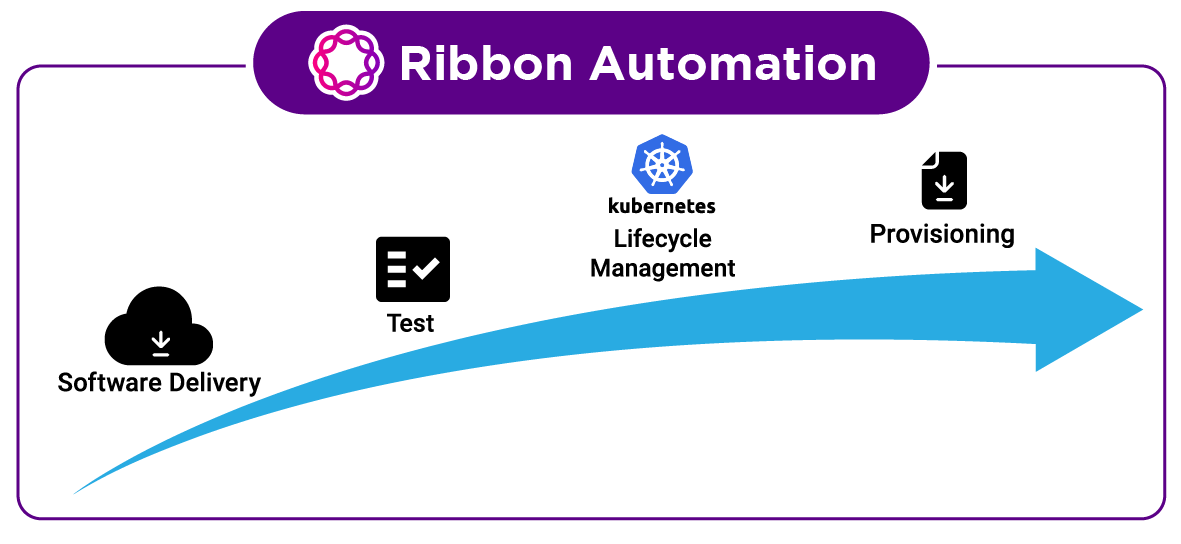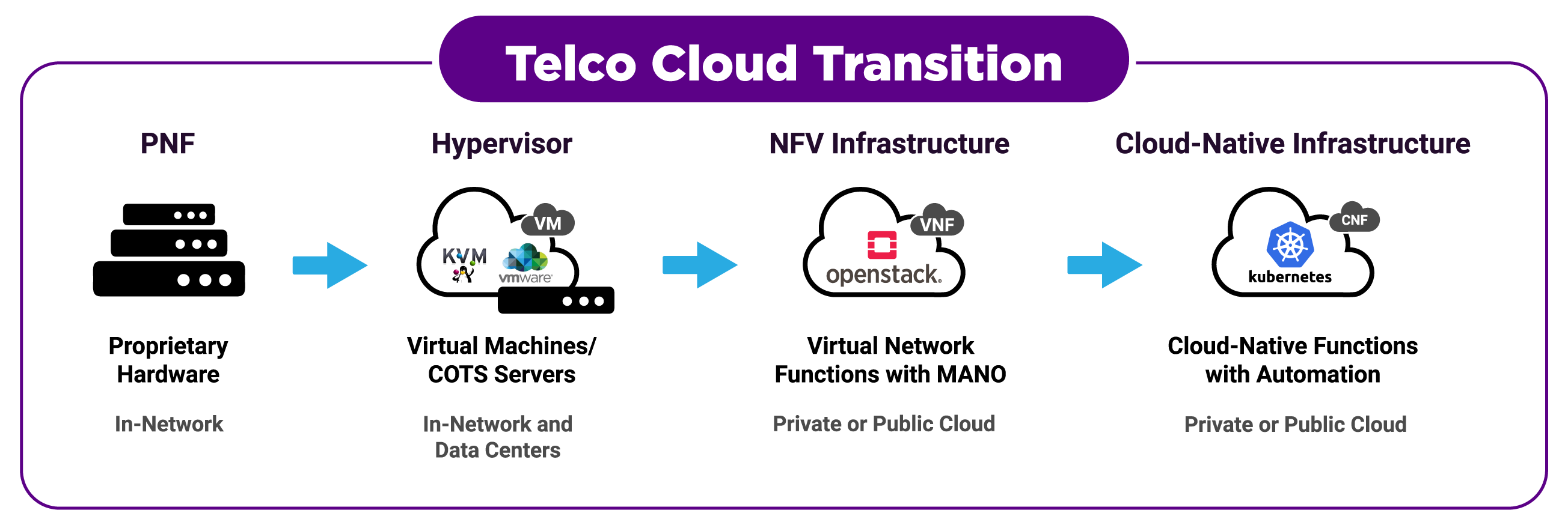Cloud-Native Networks
Transitioning to a cloud-native network means network functions are based upon the adoption of cloud-native design principles AND the adoption of cloud-native operations principles. Only with both will the transition to cloud-native network functions (CNFs) meet the high expectations being set by service providers.
For Ribbon, the adoption of cloud-native design and operations principles begins with container-based microservices and automation. Our cloud-native products enable our customers to:
- Deliver services using a common cloud investment leveraging an extensive ecosystem of open-source software
- Efficiently and dynamically scale up or down to optimize cloud resources
- Seamless fit into an observability framework, across multiple network domains
- Gain operational efficiencies with automation for software delivery, testing, workload lifecycle management, and provisioning.
- Reduce operations expense
Ribbon currently provides the following products as cloud-native network functions:
Ribbon Automation
Service providers who transition their real-time communications workloads to a cloud-native environment will expect Ribbon to align with their Continuous Integration / Continuous Delivery processes. Ribbon will accomplish this with Ribbon Automation for:
- Software Delivery
- Testing
- Lifecycle Management
- Provisioning
Ribbon’s goal is to provide automation that hides eliminates the complexity of CNF management for each cloud-native function we provide

Cloud-Native SBCs for CSPs Whitepaper
Network Functions Virtualization
Many service providers are only beginning to investigate or plan their transition to a cloud-native implementation. Instead, they have implemented a network functions virtualization (NFV) infrastructure in their private cloud to eliminate dependencies on proprietary hardware, to enable more dynamic scalability, and to improve network and service flexibility.
Ribbon has been already been delivering multiple software products as virtual network functions (VNFs) that can be deployed on OpenStack-based private clouds as well as on public clouds such as AWS, Azure, and GCP.


